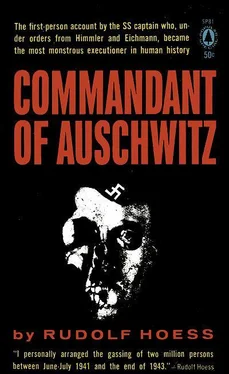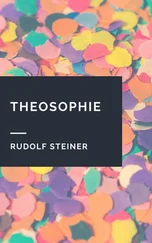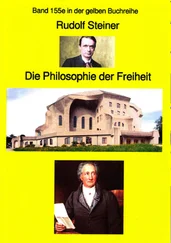My guardian, and indeed all my relations, badgered me to go at once to a training college for priests, so that I might find the right surroundings and prepare for my predestined profession. Our household had been completely broken up, and my sisters had been sent to a convent school. I realized for the first time the full significance of my mother’s death. I no longer had a home. My “dear relations” had shared out among themselves all those cherished possessions which had formed nart of the home we had loved; they were certain that I would become a missionary and my sisters remain in the convent, and that therefore we would have no further use for such worldly things. Sufficient money had been left to buv our entry into the mission house and the convent.
Filled with indignation at my relations’ highhanded action, and, with distress at the loss of my home, I went that very day to my uncle, who was also my guardian, and told him curtly that I had decided not to become a priest. He tried to compel me to change my mind, by telling me that he was not prepared to find the money to set me up in any other profession, since my parents had decided upon the priesthood for me. I speedily resolved to renounce my share of the inheritance in favor of my sisters, and on the following day I got my lawyer to draw up the necessary documents. From then on I refused to accept any further help from my relations. I would battle my way through the world alone. Full of rage and without saying goodbye, I left this “relation-ridden” house, and traveled to East Prussia, in order to enlist in a Freikorps destined for the Baltic States. [14] Volunteer units of former soldiers which sprang up in Germany at this time, and which were originally formed to safeguard the frontiers and prevent internal disturbance. The one he belonged to was the Freikorps Rossbach, with which he fought in the Baltic States, Mecklenburg, the Ruhr, and Upper Silesia.
In this way, the problem of my profession was suddenly solved and I became a soldier once more. I found a home again and a sense of security in the comradeship of my fellows. Oddly enough it was I, the lone wolf, always keeping my thoughts and my feelings to myself, who felt continually drawn toward that comradeship which enables a man to rely on others in time of need and of danger.
The fighting in the Baltic States was more savage and more bitter than any I had experienced either in the World War or later with the Freikorps. There was no real front, for the enemy was everywhere. When it came to a clash, it was a fight to the death, and no quarter was given or expected. The Letts excelled in this kind of fighting. It was there that I saw for the first time the horrors endured by a civilian population. The Letts exacted a terrible revenge on those of their own people who sheltered or cared for the German or Russian soldiers of the White Army. They set their houses on fire and burned the occupants to death. On innumerable occasions I came across this terrible spectacle of burned-out cottages containing the charred corpses of women and children.
When I saw it the first time, I was dumfounded. I believed then that I was witnessing the height of man’s destructive madness.
Although later on I had to be the continual witness of far more terrible scenes, yet the picture of those half-burned-out huts at the edge of the forest beside the Dvina, with whole families dead within them, remains indelibly engraved on my mind. At that time I was still able to pray, and I did.
The Freikorps of the years 1918 to 1921 were peculiar phenomena of the times. The government of the day needed them whenever trouble started either on the frontiers or within the country, and when the police force, or later the army, was too weak to deal with the situation or for political reasons dared not put in an appearance. Once the danger had passed, or when France made pointed inquiries, the government promptly disowned them. They were then dissolved and the new organizations which succeeded them, and were awaiting employment, were prosecuted.
The members of this particular Freikorps consisted of officers and men who had returned from the war and who found themselves misfits in civilian life, of adventurers who wanted to try their hand at this game, of unemployed men anxious to escape from idleness and public charity, and of young enthusiastic volunteers who hastened to take up arms for love of their country. All of them, without exception, were bound by a personal oath of loyalty to their Corps leader. The Corps stood or fell with him. As a result there developed a feeling of solidarity and an esprit de corps which nothing could destroy. In fact the more we were pushed around by the government in office, the more firmly did we stick together. Woe to anyone who attempted to divide us—or betray us!
Since the government was forced to deny the existence of these volunteer corps, the authorities were unable to inquire into or punish offenses committed by their members in the cause of their duties, offenses such as the theft of weapons, the betrayal of military secrets, high treason, and so on. The Freikorps and their successor organizations therefore administered justice themselves, after the ancient Germanic pattern of the Vehmgericht of olden times. [15] Medieval courts that sat and passed sentence in secret.
Treachery was punished with death, and there were many traitors so executed.
Only a few of these incidents became known, however, and even then it was only very rarely the “executioners” were caught and brought to trial before the State Court for the Defense of the Republic, a court especially created for this purpose. [16] The State Court for the Defense of the Republic was established in connection with the Law for the Defense of the Republic, enacted June 26, 1922. It is incorrect to say that it was “specially” created to deal with Vehm murders. Paragraph 7 of the law in question shows that this court was competent to judge cases in which the accused were tried for crimes directed against the Republic (as a state form) and against members of the government. This law was passed, and the court in question established, consequent on the murder of the Foreign Minister, Rathenau, on June 24, 1922. (For an interesting though not always reliable description of this murder by one of the murderers, see The Answers of Ernst von Salomon, London, Putnam, 1945.) The court was not concerned with Vehm murders as such. The reason why the Parchim trial was held in this court, at Leipzig, and not in the normal district court at Schwerin, was that the Schwerin State Attorney had declared that Hoess and almost all his accomplices in the crime belonged to the “Union for Agricultural Professional Training,” an illegal successor organization to the banned “Rossbach Labor Community,” which itself had been the Freikorps Rossbach, also declared illegal, under another name: since this organization was hostile to the republican form of government, political crimes committed by its members as such made them subject to the jurisdiction of this special court.
But that was what happened in my case. There was a Vehmgericht murder trial in which I was involved and as a result of which I, as the alleged ringleader and the person most concerned, was sentenced to ten years’ hard labor. We had killed the man who had betrayed Schlageter to the French. One of us who was present when we carried out the execution gave an account of it to Vorwärts, the leading social-democratic newspaper, ostensibly out of feelings of remorse but actually, as was afterward established, in order to make money. What really happened was never made clear. The witnesses for the prosecution were not sufficiently sober at the time of the incident to be able to remember the exact details. Those who really knew what had taken place remained silent.
Читать дальше












